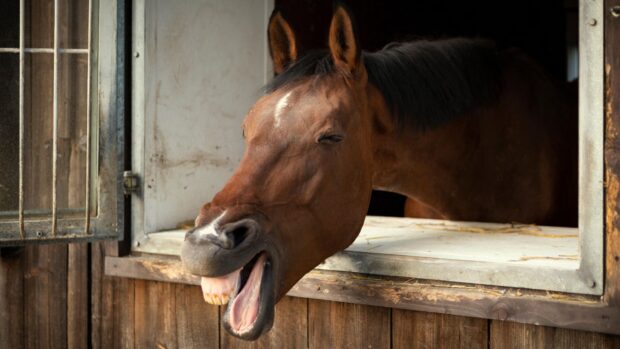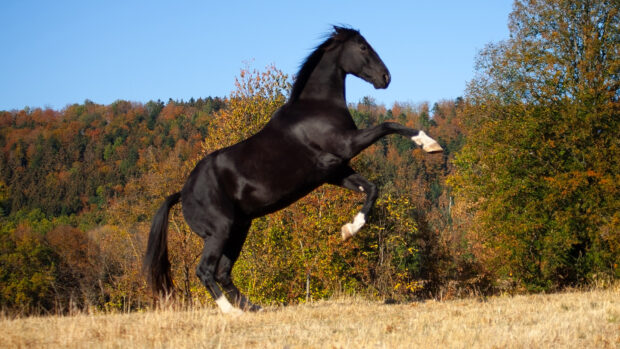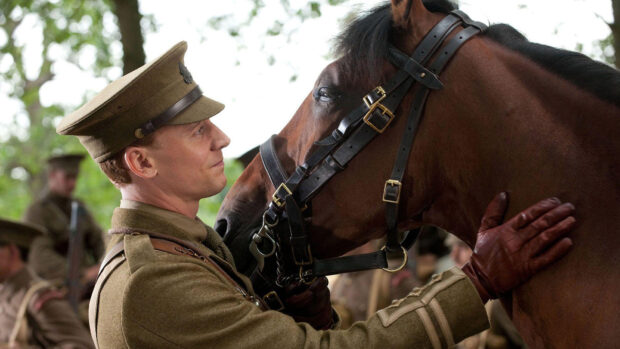Nestled in the north of Scotland is an equestrian set-up helping to get injured servicemen’s lives back on track. Melanie Scott visits HorseBackUK to find out how it works
How did HorseBackUK start?
Jock Hutchison (pictured below) joined the marines in 1986 and flew helicopters in Bosnia and Northern Ireland. When he left and joined the civilian world he flew commercially, but always had a dream to have a business with horses.
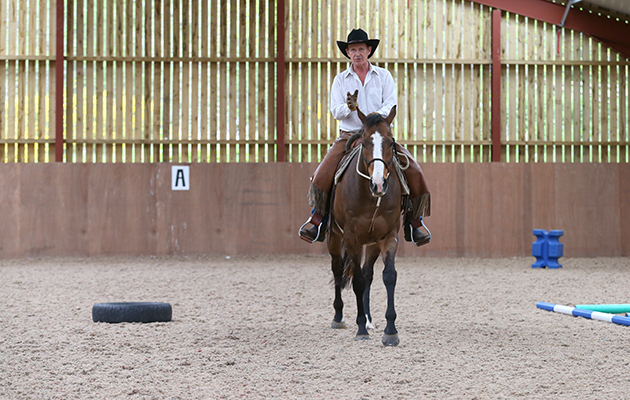
Based in the north of Scotland in Royal Deeside, only a few miles from Balmoral Castle, Jock and his wife Emma took over the property in 2008, with the idea to breed quarter horses with thoroughbreds. A friend still serving in the Royal Marines suggested the farm would make a good day out for 16 young men of 45 Commando who had endured significant injuries while serving in Afghanistan. It was during their visit that the idea was born.
“We spent the first two years bringing guys here with life-changing injuries — they were all fit but badly hurt and keen to do something,” says Jock. “We worked with the horses in the morning and then in the afternoon we’d spend time outdoors fixing buildings or fences — we all worked as a team.
“That was the spark and the motivation to start — I had a vision and could see an opportunity and knew we could fill it. The driver was: ‘What can these guys do for our society?’ It gave them purpose, and a sense of community.”
And so using horsemanship and the outdoors to develop confidence and self-esteem by following community, purpose and empowerment, HorseBack UK was born.
Who does the charity help?
Jock admits that the first two years of the charity was hard as running costs are around £380,000 per year. In 2012 they were supported by Help for Heroes, with funding covering the course costs for wounded, injured and sick military personnel. And now HorseBack is open to a wide range of clients. As well as the serving and veteran servicemen or women suffering from either physical or operational stress injury, the charity has recently been involved with Racing Welfare, helping injured jockeys, and more than 180 school children and local disadvantaged children have visited the centre.
What is the purpose of the work that they do?
Coming from a military background, Jock can understand the fears that many former servicemen and women experience.
“It’s very difficult to re-establish a sense of belonging when you go back onto civvy street,” explains Jock. “We bring them here for three one-week residential courses spread over six months; it’s more effective for permanent change if it’s spread over a longer period.
“The difference is quite amazing; the veterans start to look after each other and communicate again. It’s widely recognised now that there needs to be a big shift in the recovery process and people need to have a purpose. The best people to help are those that have already walked the route.”
And it’s for this reason that two mentors accompany the group 24/7 through the programme. The mentors are former programme participants and have already faced similar challenges and understand the fears and concerns many veterans have.
“All injuries are different and recovery time for each individual is different,” says Jock.
“Today the first aid in the war zone is extraordinary but if you’re physically injured you need time to recover.
“It’s important to destigmatise mental health. It’s not a weakness — the military understand this and are making attempts to change it. It’s recognised that the quicker that help is sought for mental illness the less damage there is in the long run.
“Recovery is a lengthy process whether it’s mental, physical or both. If you’ve been a patient for a long time, confidence and self-esteem are often stolen from you. To have a successful second career you have to have both those things as well as connections in the civilian world.
“It can take seven years from a situation occurring to a breakdown. At the end of their clinical support they can come to HorseBack to reconnect to the world. Last year we had the equivalent of 162 veteran attendees through our programme.”
How do the horses come into play?
“The concept of horses helping humans is nothing new,” says Emma. “We need to learn trust and respect and the horse is the best way to teach leadership as they don’t lie. We’ve had around 800 people here and everyone has left feeling uplifted.
“The initial emphasis is to learn the basics; care for the horses and building trust. Once that trust is established, the groundwork starts — kindness, patience, building confidence and being completely at ease with their horse.
“There’s a wide variety of horses, from half a dozen Shetland pony-sized to bigger, stronger weight-carrying cobs,” she explains. “The small ponies are used for those who are initially frightened of horses; grooming, leading and generally handling the ponies to overcome their fear.”
A walled garden has been altered into a safe enclosed riding arena to allow everyone to ride. A round pen is used for one-to-one groundwork and a new indoor arena, built through the Libor Fund, was opened by the Princess Royal in 2015.
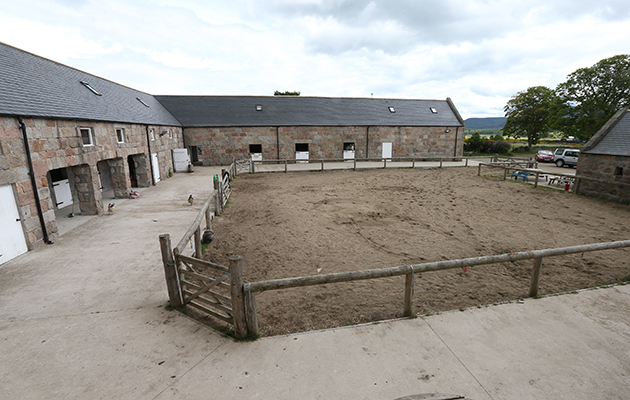
Jock is adamant that the work HorseBack undertakes isn’t clinical.
“It’s about gaining confidence and belief and making good decisions. As the course progresses each attendee finds out a little more about themselves,” he says.
Continued below…

Monty Roberts: ‘There’s no such thing as natural horsemanship’

Double-decker stables and a hidden horse walker: is this Britain’s most compact yard?
Thoroughbreds, Jock says, are the most intelligent horses to work with. HorseBack has one ex-racehorse — Peopleton Brook — whom they use for Retraining of Racehorses (RoR) demonstrations. They have a horse from World Horse Welfare, whose Belwade Farm base is nearby, and another horse — Straightman — was gifted by the Princess Royal after one of the HorseBack staff Jay Hare spoke at the World Horse Welfare conference.
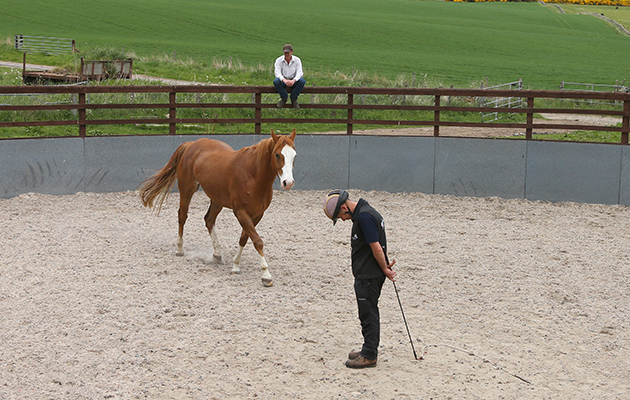
The work with horses is about 50% of what the charity now does; there are also other outdoor activities including falconry and conservation work. Jock and Emma have some horses that can’t be ridden, but they can be used for handling and grooming exercises.
“Here we are interested in what people can do, not their limitations,” adds Jock.
Don’t miss the full feature about the work that HorseBackUK does in the current issue of Horse & Hound magazine (15 June 2017)

